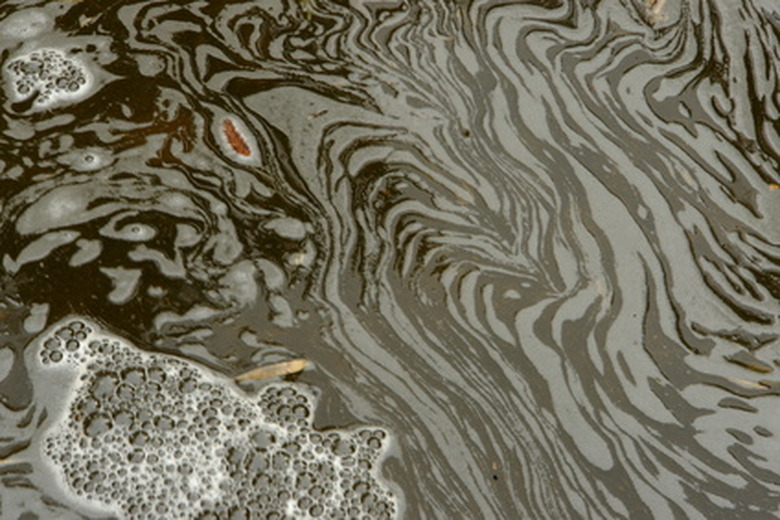Uses Of Alkali
Alkali refers to the Arabic word "al qaliy" or calcined ashes that provided the early source of the alkaline substance. On the pH scale, alkali has a pH of 7.1 or greater. Alkalis are usually water soluble with applications in the chemical, environmental and metallurgical industries. Whether used in the construction of the pyramids in Egypt or for neutralizing the pH level of lakes fed by acid rain, alkalis are a vital part of products and substances used daily.
Environmental Uses
Environmental Uses
Alkalis can help soften potable water and remove impurities such as manganese, fluorides and organic tannins. According to the National Lime Association, heavy industries use alkali in the form of lime to absorb and neutralize sulphur oxides to aid in reducing acid rain.
Lake Treatment
Lake Treatment
Sulphuric dioxide produced by industries and released into the atmosphere returns as acid rain or sulphuric acid. In lakes impacted by acid rain, such as in Ontario, Canada, the application of alkalis dropped by airplanes can control and neutralize the water's pH level.
Sewage Treatment
Sewage Treatment
Alkalis can convert waste products by maintaining the correct pH for oxidation of sewage. Applying alkali can stabilize sewage sludge, and reduce odor or bacteria. Dewatering the sludge, then adding lime or quicklime meets the U.S. government criteria regarding treatment for reducing pathogens. This treated sludge then can act as a soil conditioner on farm land.
Industrial Applications
Industrial Applications
For industrial and mining operations, applying alkalis to wastewater can remove phosphors and nitrogen and improve clarity. Excess-alkalinity treatment raises the pH of water to 10.5 to 11 and can disinfect the water and remove heavy metals. Alkalis such as lime are key in the chemical production of calcium carbide, citric acid, petrochemicals and magnesia. In the paper industry, calcium carbonate is a causticizing agent for bleaching. The steel industry depends on lime to act as a flux to remove impurities such as gaseous carbon monoxide, silicon, manganese and phosphorus.
Detergents
Detergents
Alkaline detergents aid in hard surface cleaning. These economical, water-soluble alkalis with a pH from 9 to 12.5 can neutralize acids in different types of dirt and soil. These detergents can remove scuff marks, water emulsion waxes and accumulated dirt.
Ceramic Products: Glass and Glazes
Ceramic Products: Glass and Glazes
Alkalis are a principal raw material in glass. Limestone, as well as sand, soda ash, lime and other chemicals, are fired at extremely high temperatures and transformed into a molten mass. Potters use alkalis for glazes and body fluxes that react with acids to form silicates or glasses when heated. Stronger alkalis create a brighter color response in glazes.
Cite This Article
MLA
Hatashita-Lee, Kathryn. "Uses Of Alkali" sciencing.com, https://www.sciencing.com/uses-alkali-6899272/. 24 April 2017.
APA
Hatashita-Lee, Kathryn. (2017, April 24). Uses Of Alkali. sciencing.com. Retrieved from https://www.sciencing.com/uses-alkali-6899272/
Chicago
Hatashita-Lee, Kathryn. Uses Of Alkali last modified March 24, 2022. https://www.sciencing.com/uses-alkali-6899272/
